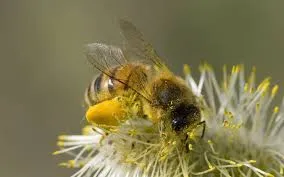Most of us develop redness and swelling at the site of an insect sting. However, people who are allergic to stinging insect venom can have much more serious reaction including fatal reaction. Here is an article that goes over the steps to protect people with insect sting allergy.
- Be careful around trash cans, as flying insects are attracted to garbage.
- Keep an insecticide spray that is specific for stinging insects handy at all times.
- Do not go barefoot outdoors. Wear long sleeves and stockings to limit the area of exposed skin.
- Extreme caution during gardening is advised. Wear gloves as the nests of yellow jackets are usually located underground and those of hornets are found in trees.
- Window screens should be checked for openings. Keep car windows closed while driving.
- Avoid brightly colored clothing and perfume when outdoors. Stinging insects are looking for food and could confuse you with a flower.
- Avoid picnic areas and other locations that feature exposed food all of which attract stinging insects.
- Be careful outdoors when cooking, eating or drinking sweet beverages like soda or juice. Cover food and drinks to keep insects out.
- Inform teachers, sports instructors, baby-sitters and camp supervisors of your child’s allergy. A medical bracelet is recommended.
- Avoid loose-fitting floppy garments that can trap insects.
- Carry a self-injectable adrenaline (or epinephrine) device with you at all times. (For e.g. Epipen or Auvi-Q). Instruct your companions how to use it.
Seasons of concern in Idaho
The season of concern depends on the insect and geographical area. Summer would be an active season for insects in Idaho. There is no appreciable insect presence during the winter, and such precautions are less necessary. If you have an anaphylactic reaction, inject epinephrine immediately and call 911. After a serious reaction to an insect sting, consultation with an allergist / immunologist is essential. A board-certified allergist can diagnose the insect that you are allergic to and determine the best form of treatment for you. Preventative immunization or Venom immunotherapy (allergy shots) is an effective long-term treatment for stinging insect allergy. It is strongly recommended. Shots containing small doses of your allergen (modified venom of insect) are given which allows the body to build a natural immunity to the “culprit” insect. This treatment program is highly effective and can essentially eliminate any danger of adverse sting reaction.
The Allergy Group – Friendly, capable and experienced
Our team of physicians and healthcare professionals at The Allergy Group are highly experienced and trained to provide you with the best care. We are committed to your personal healthcare. Be safe. Don’t take chances! Call 208-377-4000 today or use our online form to schedule an appointment.


